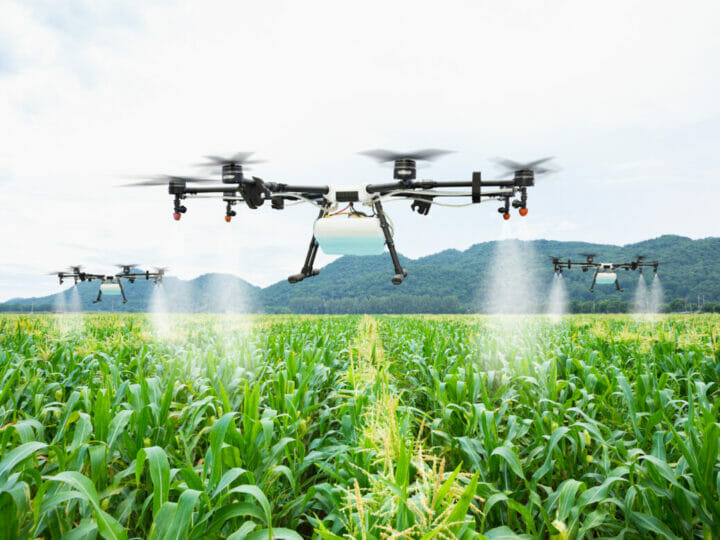There has been rapid innovation in using drones in agritech.
An increased investment in technology – like agritech drones – will help grow the agricultural sector and ensure the supply of food by 2030. It will help to maximise productivity, and output and satisfy customer demands in food and farming, according to Rachel Foster Jones, a thematic analyst at GlobalData.
She made the prediction in a new podcast from the research firm. The top market watcher backed up the claim by pointing out how the number of drone-related patents in agritech has increased 14-fold between 2015 and 2021. By 2030, Foster Jones believes these drones will be more autotomised and modular.
“Modular-based innovation will mean that drones will be able to undertake advanced crop spraying and terrain monitoring, tasks which are often unappealing to farmers as they are incredibly time-consuming,” said Foster Jones. “I think that the labour crisis and skills shortage will only act to bolster agricultural drone demand.”

Agritech drones can be used to improve yield optimisation and monitoring in modern farming.
Foster Jones claimed we are witnessing a pivotal moment with technology like agritech drones. She added that rapid population growth has seen increased food-related demands in the agricultural sector.
“Farms will become smarter as technology [like agritech drones]will help to produce more food, on less land,” Rachel Foster Jones, a thematic analyst at GlobalData says in a new podcast.
Agritech will also help farmers to find smarter ways to maintain their farms, such as harvesting crops and autonomous fertiliser spraying and producing food. New technology will introduce precision to agritech with the sensor using techniques that combine the internet of things and automation. It will help to produce self-regulating crop microclimates which use sensors and control systems.
“The sector will also have to adapt to the impacts of climate change as, by 2030, extreme weather events such as droughts and floods will become even more common,” Foster Jones added. “The mass adoption of agricultural technologies to overcome these challenges will result in the so-called ‘Fourth Agricultural Revolution.’”
This article was originally published here.

